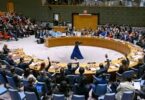A high level Afghan delegation led by Deputy Foreign Minister Hikmat Khalil Karzi is visiting Islamabad to hold second round of discussion on Afghanistan-Pakistan Action Peace Plan (APAPP). It is a joint action plan that envisages cooperation in the area of counterterrorism and reduction in violence, peace and reconciliation, Afghan refugee repatriation and joint economic development. Earlier on Feb 3 a high level Pakistan delegation led by Foreign Secretary Tehmina Janjua visited Kabul and held discussions with their Afghan counterparts led by Deputy Foreign Minister Hikmat Khalil. A press release of foreign office says that there are still important areas to be disused upon and both sides remain committed to continuing their discussions to reach an agreement on the APAPP, adding that next meeting between the delegations of two countries would take place in Kabul on Feb 9and 10.
The instability in Afghanistan directly affects Pakistan and return of peace and stability to Afghanistan at the earliest is inevitable not only for the supreme interest of both the neighbors but also for the peace and prosperity of the entire region. Frequent interaction between the leadership and high officials of the two countries will help in working out a joint mechanism for the effective management of the border. It will help control the movement of militants across the border for carrying out terrorist activities in both the countries. The militants of Therik Taliban Pakistan (TTP) and other banned outfits have sanctuaries in Afghanistan’s provinces bordering Pakistan. The Deputy Chief of TTP Mehsud faction Khan Said alias Sajna has been killed in a US drone attack on Friday in the Margha area of Khost Province and Mauli Khatir has been appointed the new Deputy Chief of the organization. Chief of TTP Swat Chapter Maulana Fazal ullah is directing terrorist activities in Pakistan from the Kunar Province of Afghanistan. The recent terrorist attacks in Kabul and Swat necessitated immediate removal of mistrust and closer cooperation in the areas of counter terrorism and reduction in violence
A number of diplomatic initiatives have been taken to discuss an early solution of Afghan problem but the United States did not lent its support to them. The US was invited to 12 parties International Peace Conference in Afghanistan hosted by Russia in Moscow on April 14, 2017 but it refused to attend that conference. Likewise, it did not extend diplomatic support to Quadrilateral meeting that took place in Doha Qatar on 16th October, 2017. Moreover, it did not support The Beijing Moot on Afghanistan held on December 26, 2016. Both Pakistan and the United states are important stakeholder in Afghanistan and the United States should not exclude itself from the regional peace initiatives if it really want peace and stability in Afghanistan which will certainly provide a dignified exit strategy to President Trump Administration. The mantra of “do more “and allegations against Pakistan to have provided safe heavens of Afghan Taliban and Haqqni network will not serve any useful purpose in the resolution of Afghanistan problem. It will widen the trust deficit between the stakeholders who are part of the solution.
President Donald Trump South Asia strategy gives more weight to the military solution of Afghanistan issue but like the Vietnam War military option in Afghanistan will also fail. The war experience of the last 16 years makes it amply clear. Afghan Taliban controls almost half of Afghanistan’s territory and should be recognized a stakeholder in peace dialogue. There seems no other option except a negotiated settlement of this issue.






